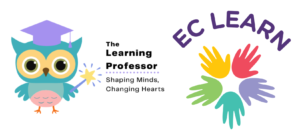Building Positive Relationships
Relationships are an essential component of an early childhood classroom. One of my favorite quotes is by Jack Shonkoff, editor of the book Neurons to Neighborhoods in which he says, “Without relationships, there is no development.” If you think back on your own experiences, I imagine that the times when you learned the most were the times when you felt connected to the teacher. I love this video by Rita Pierson as she talks about building relationships with children:
I get so inspired listening to her. And then I think about the experiences that many children have when they arrive at school Another one of my favorite videos is this short video from Atlanta Speech School called Every Opportunity. We have the ability to influence how children perceive their environment:
Here are some tips to help you get on the right start to building positive relationships with children in your classroom:
- Greet each child warmly using his/her name. Consider using a greeter apron. A greeter apron has different symbols on it that represent different types of greetings, such as a heart for a hug, a hand for shaking hands, a happy face for a smile, or a #5 for a high five. Children can choose which way they would like to be greeted in the morning, including not having a greeting at all.
- Learn how to pronounce (and spell) each child’s name correctly, even if you have to ask multiple times. No one feels special when his/her name is constantly mispronounced.
- Allow for unstructured play time each day. Let children be the leaders when playing instead of making all of the decisions for them. This shows children that you value their thoughts, desires, and feelings.
- Have casual conversations with children during free play time instead of always “testing” them or doing “teacher talk”. Sometimes we ask so many questions that children don’t think we are really interested in what they are doing.
- Be consistent and mean what you say. It’s not mean to follow through on your word. It actually helps children to feel safe. When you set a limit with a consequence and then provide multiple chances, it can become very confusing to children what the boundary actually is.
- Talk to children about their interests. Strive to learn what they did over the weekend, who they saw, what they liked most, etc.
- Respect children’s feelings. It’s ok for children to be angry or sad or frustrated. Teach children that feelings are ok, and show them appropriate ways to express their feelings.
- Limit TV and Other “Screen Time”. Electronic devices take time away from connecting with human beings. Use the time children are with you to make live connections.
- Speak privately to children when an issue arises. Make sure that they don’t feel humiliated in front of others.
- Play games in which children learn how to take turns. This prepares them for conversational turn taking.
- Get on the child’s level when talking to him/her, and make sure you are using a pleasant and calm voice.
- Acknowledge children’s accomplishments by using specific feedback about their actions.
- Give children time to develop relationships with other children in the classroom.
- Provide children with opportunities to practice skills such as how to get someone’s attention, how to solve friendship squabbles, and how to take turns.
- Learn basic words in a child’s native language.
- End each day with a warm goodbye, and start each day fresh with no leftover emotions from the previous day’s events.
What other ways do you build relationships with children?







